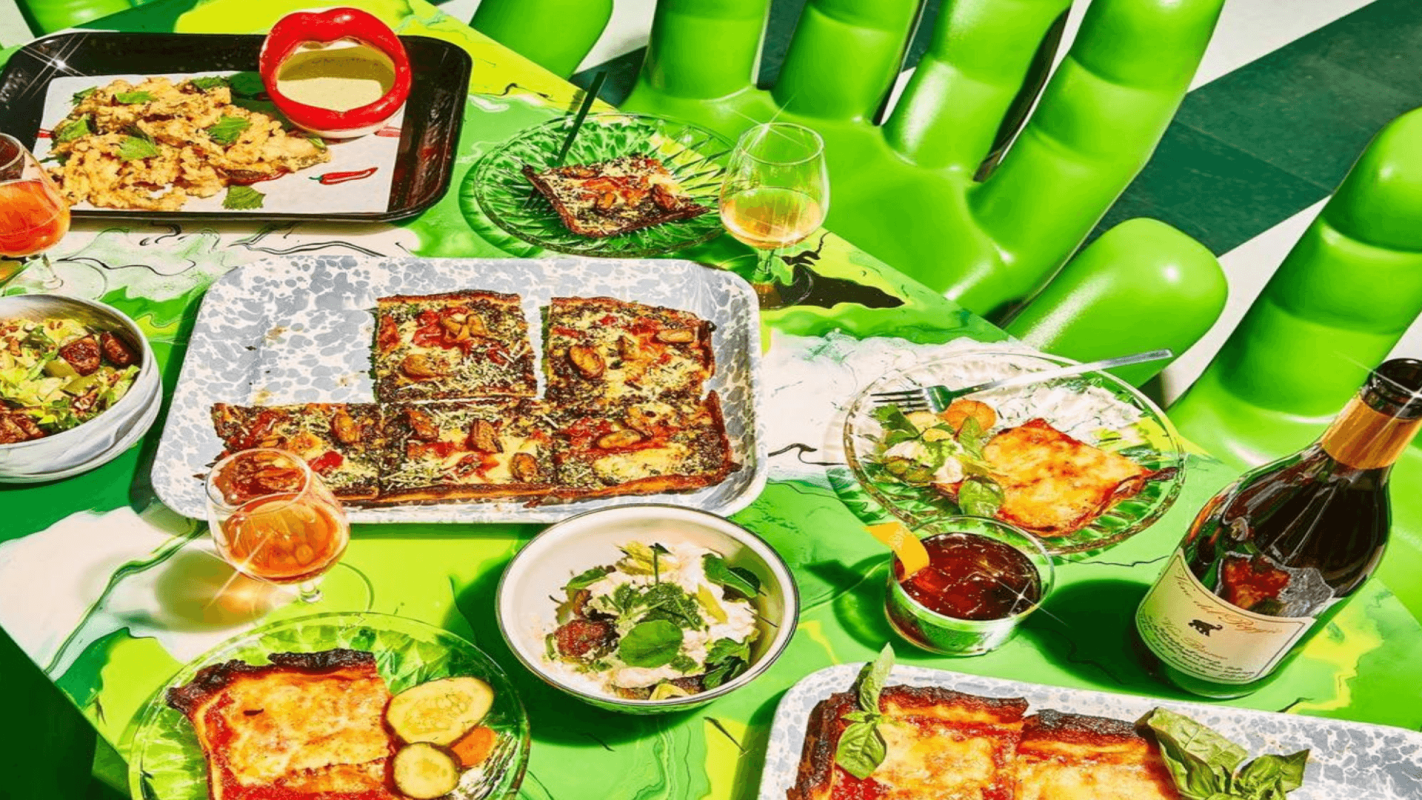Shuggie's Trash Pie sounds like the name of a dish you'd find on Sesame Street. And though it wouldn't look out of place between Hooper's Store and Oscar's trash can, the colorful, sustainability-focused, upcycling pizza place is based in San Francisco. But sadly, it has no catchy song to tell you how to get to it — you'll probably have to use Google Maps.
The restaurant, featured in a recent NPR segment and Eater article, is owned by Kayla Abe and David Murphy. The eye-catching green-and-yellow storefront opens to vibrant, intriguing rooms, with an unusual menu to match: Nearly every dish boasts ingredients that were otherwise slated for landfills as food waste. Murphy and Abe rely on relationships with local farmers to scoop up off-cuts and ugly produce before they can contribute to an unsustainable food waste problem.
And business is booming! Murphy told NPR that "it's been mayhem … every single day at 5 o'clock (when Shuggie's opens) there's at least five or 10 bodies waiting outside to get in."
Food waste is not a cheap problem. The EPA found that 30% of food produced in the U.S. is wasted each year, which costs us more than an estimated $161 billion each year and creates dangerous pollution like methane gas.
Shuggie's is trying to change this by sparking change in its customers' food habits. When ordering at Shuggie's, you may notice a small paragraph on the menu that notes food waste's connection to Earth's overheating and what individuals can do to address this problem. Abe told Eater that "for people to take something home with them, and to change the way they eat — that's where we actually can start to make a difference."
Shuggie's is not Murphy and Abe's first foray into food sustainability. Murphy, a chef, and Abe, who worked for a food justice nonprofit, launched Ugly Pickle Co. in early 2019. This company sells "cosmetically-challenged" pickles and other products to prevent food waste.
Ventures like these, although colorful and exciting, exist within a broader, ongoing struggle to reduce food waste that has existed for hundreds of years, often as a matter of survival. Many Native and African American communities have long relied on food systems to survive centuries of oppression. These communities have created food justice organizations to restore local and traditional food systems that use sustainable, community-centered practices. Immigrant communities and restaurants also make use of what others might consider "off-cuts" and have modeled sustainable eating practices for hundreds of years.
Follow The Cool Down on Instagram and TikTok.







